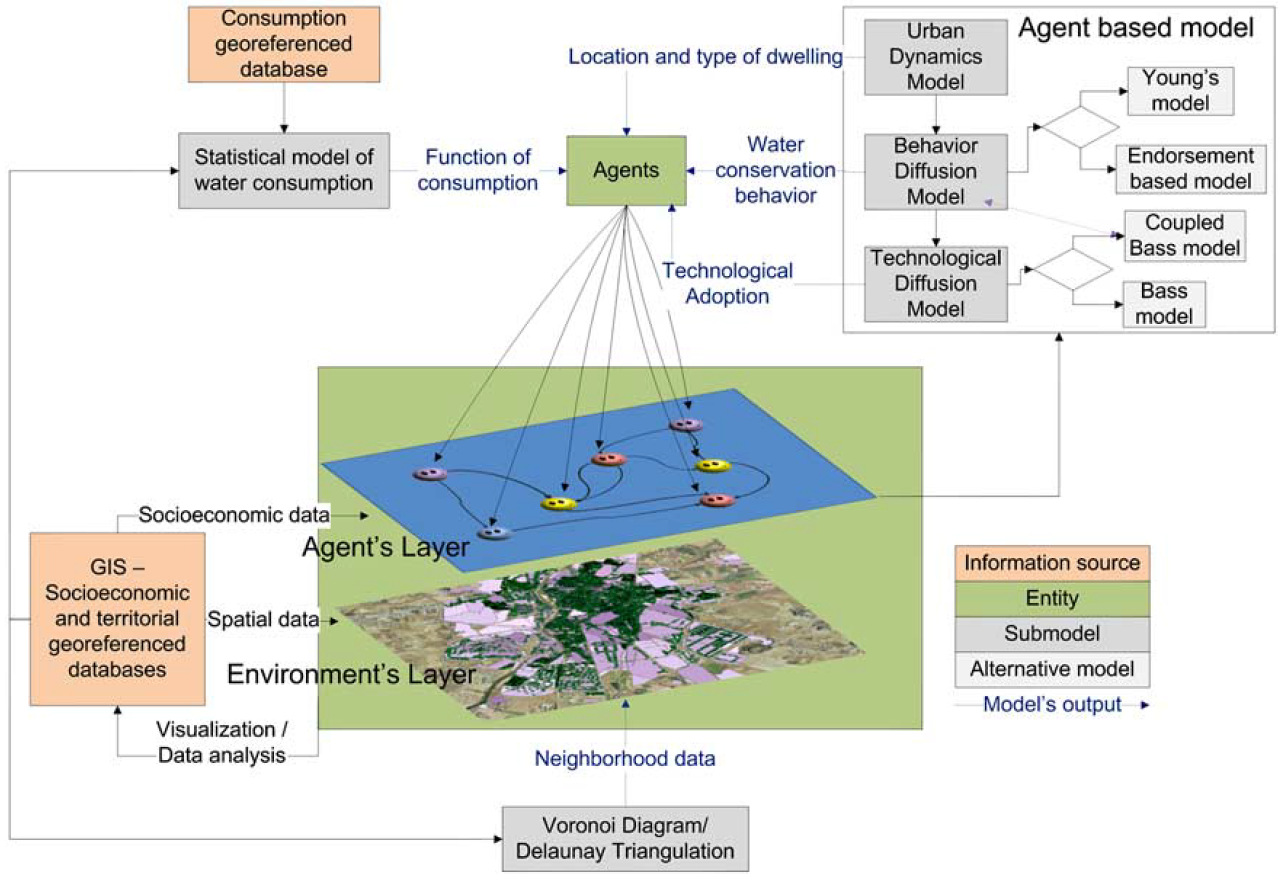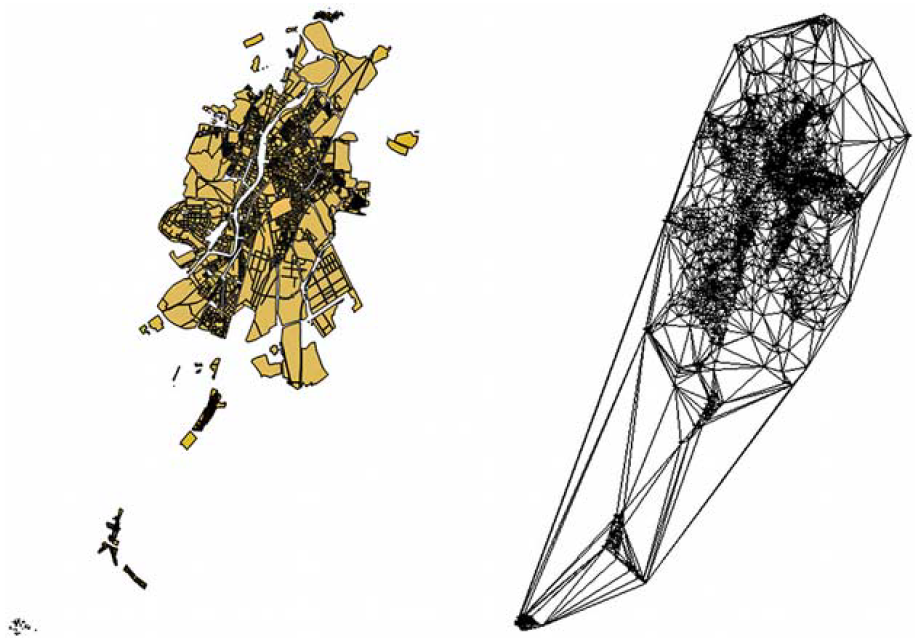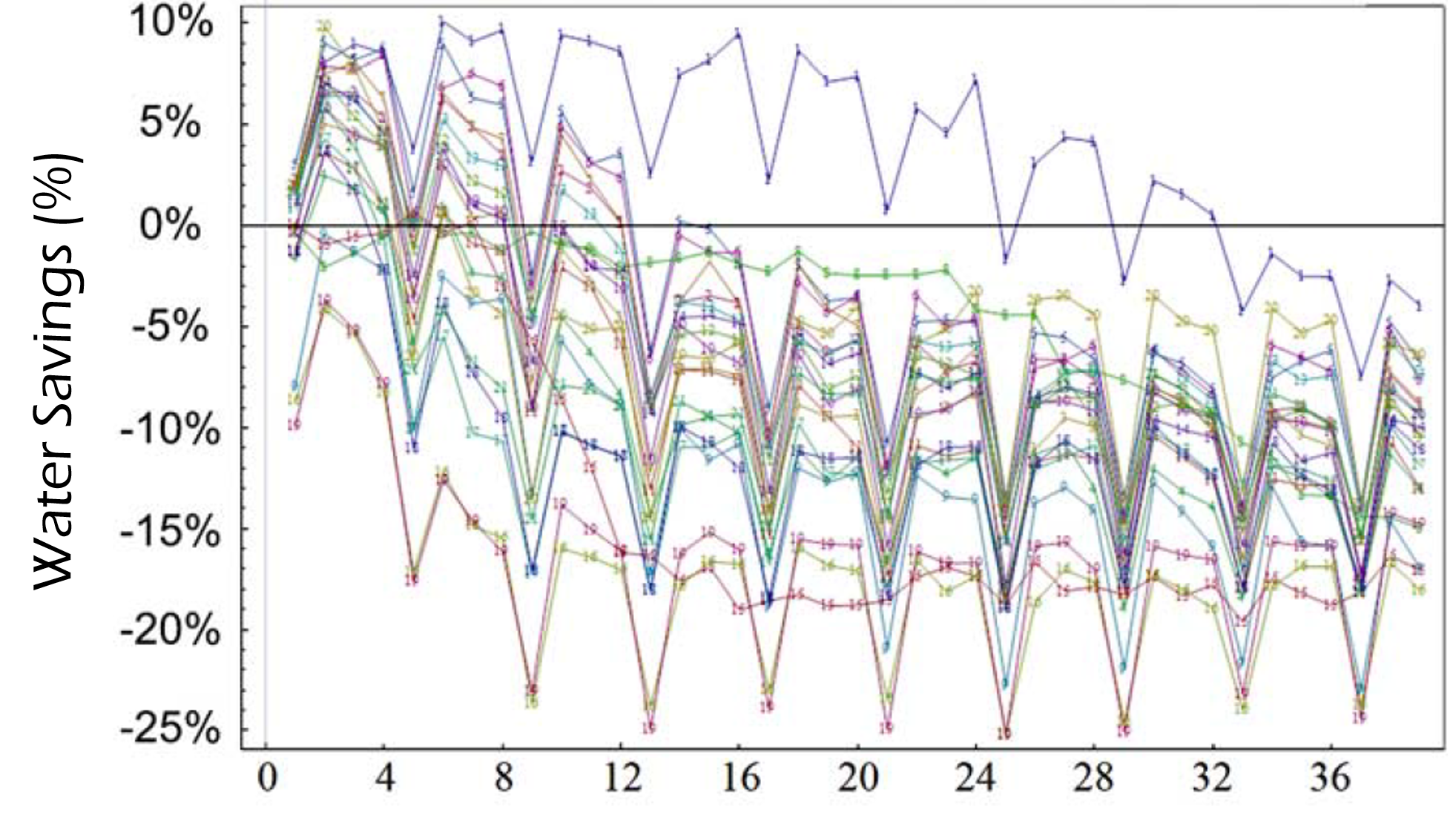The main challenge in water management has traditionally consisted of ensuring the fulfillment of a certain, preset, demand of water with an often insufficient water supply. As such, domestic water management has been historically focused on supply side policies. Nowadays there is an increasing awareness that a wide range of socio-economic factor play an influential and important role in urban water use, and also that these factors may be somewhat shaped and harnessed to design and implement better policies.
Through this project, sponsored with Regional Administration funds, we applied the combination of agent-based modeling and simulation to deal with the complexity derived from multiple factors with influence in the domestic water management in emergent metropolitan areas.
Different social submodels, models of urban dynamics, water consumption and technological and opinion diffusion, were adapted and integrated in an agent-based model, which was linked with a geographic information system (GIS).
The result was a computational environment that enables simulating and comparing various water demand scenarios. During this project, it was particularized for Valladolid metropolitan area (Spain), and it was shown an accurate prediction capability by this tool, which may be adapted to any other case or even to a more general domain (e.g. Smart Grids).




